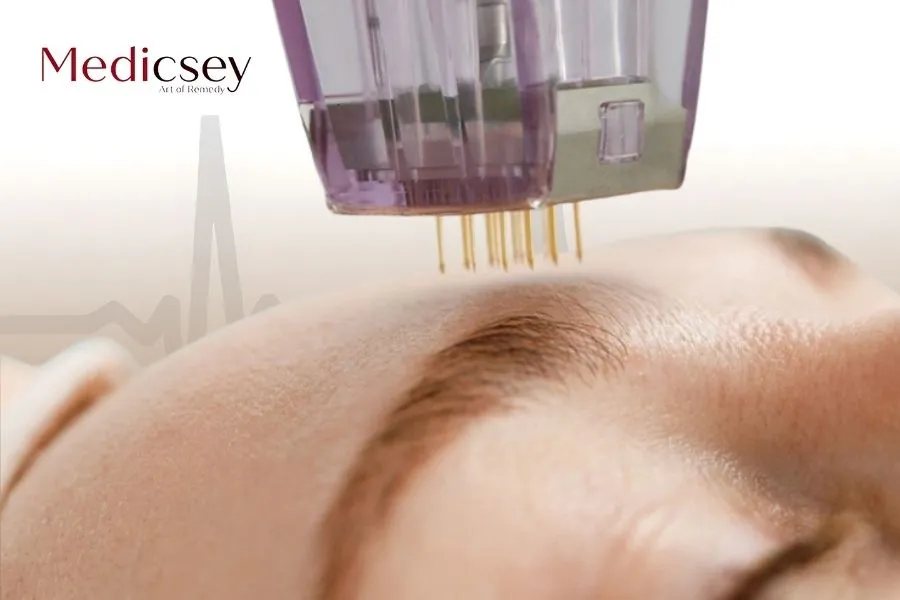Premature babies often face serious health problems. These problems vary, but the sooner a baby is born, the more likely he is to have health problems.
Table of Contents
What is premature birth?
A full normal pregnancy lasts approximately 40 weeks, while premature birth is defined as contractions and cramps that open the cervix before 37 weeks of pregnancy.
Premature birth occurs before the fetus is fully developed in the womb, as babies born before week 34 are at risk of many health problems, such as incomplete lungs and underweight.
Symptoms of premature birth
Among the main symptoms of premature birth are the following:
- The appearance of cramps in the lower abdomen several times during one hour.
- Low back pain.
- Feeling of increased pressure in the pelvic area or in the vagina.
- Diarrhea.
- Vaginal bleeding.
- Discharge of fluid from the vagina.
- Contractions in the uterus several times per hour.
- Increased vaginal discharge.
If you have one of these signs, especially bleeding, you should immediately see a doctor.
Causes of premature birth
The causes of premature birth are often unknown, but this is not the end of the story as proper handling of the body during pregnancy may significantly reduce the risk of premature birth.
Some of the most prominent causes of possible premature birth include:
- Premature birth in the past.
- Pregnancy with twins or triplets.
- Disorders of the vagina, uterus or placenta.
- Smoking.
- Drinking alcohol and taking drugs.
- Various special infections, especially those affecting the amniotic fluid or reproductive system.
- Chronic diseases such as high blood pressure and diabetes.
- Weight loss or gain before pregnancy and during pregnancy.
- Recurrent miscarriages in the past.
Risk factors for premature birth
- Preeclampsia: It is a type of high blood pressure in some women during pregnancy or immediately after pregnancy, if not treated it can cause serious problems.
- Infection: including sexually transmitted infections and urinary tract, vaginal or uterine infections.
- Intrahepatic cholestasis during pregnancy: This is the most common liver condition that occurs during pregnancy.
Complications of premature birth
Premature birth leads to a number of health problems in the baby, including:
- Breathing problems.
- Cerebral palsy.
- Learning difficulties.
- Developmental delay.
- Delayed tooth growth, pigmentation or asymmetry.
- Problems with vision and hearing.
- Problems with the child's immune system. and the occurrence of digestive problems.
Diagnosis of premature birth in Turkey
Tests and procedures to diagnose preterm labor include:
- Pelvic test
The doctor may evaluate the hardness of the uterus, the size and position of the baby, perform a pelvic exam to see the cervix if it begins to open or not, and the doctor may check for uterine bleeding.
- Ultrasound
Transvaginal ultrasound can be used to investigate the length of the cervix, where ultrasound can also be performed to check the position of the baby and placenta, estimate the baby's weight and assess the volume of amniotic fluid.
- Uterine monitoring
Your doctor may use a uterine monitor to measure the duration and spacing of contractions.
- Laboratory tests
He may take a swab from vaginal discharge to check for a specific infection. These results will be reviewed in conjunction with other risk factors and the urine sample will be tested for the presence of certain germs.
Prevention of premature birth
The most prominent methods of prevention include:
- Follow-up during pregnancy
The stages of pregnancy should be followed up through periodic examinations and the doctor monitors the health of the pregnancy and the safety of the fetus.
- Maintain proper nutrition
Large amounts of folic acid, calcium, protein, iron and other nutrients are needed during pregnancy, essential vitamin pills should be taken before and during pregnancy.
- Balancing chronic diseases
Chronic diseases: diabetes and high blood pressure must be controlled before pregnancy because they increase the risk of premature birth.
- Avoid harmful substances
A pregnant woman should avoid smoking, drinking alcohol and drugs. The use of medications should be monitored and consulted by a physician.
- Injection
If you have a history of premature birth and miscarriage, your doctor can rightly recommend progesterone weekly.
Treatment of premature birth in Turkey
One of the most important methods of treating premature birth in Turkey
- Corticosteroids
Steroids can help promote fetal lung maturation, if the gestational age is between 23 - 34 weeks Your doctor may recommend corticosteroids If there is a risk of premature birth within seven days, your doctor may also recommend steroids if a woman is at risk of giving birth by 34 - 37 weeks.
- Anti-labor
The doctor may prescribe medication to temporarily slow the contractions, this medicine can be used for 48 hours to delay premature birth.
- Surgical procedures
If a woman is at risk of premature birth due to a short cervix, your doctor may suggest a surgical procedure known as cervical cerclage in which the cervix is sutured with strong sutures, usually removed after week 36 of pregnancy.
premature birth treatment cost in Turkey
Turkey has a very high level of extensive experience of its doctors, the infrastructure of its hospitals and the medical services it provides. In addition, the cost of treating premature birth in Turkey is very low compared to other countries.
In conclusion, Turkey is one of the developed countries in the field of obstetrics and gynecology. It offers several advanced laboratories and hospitals such as Medici Center, which is the best premature birth treatment center in Istanbul. For more information related to premature birth in Turkey, you can contact Medicsey Center to provide free and immediate consultation. By the best gynecologist in Istanbul Prof. Dr. med. Suna Özdemir.
read more: Hysteroscopy Procedure









.webp)


.webp)


.webp)